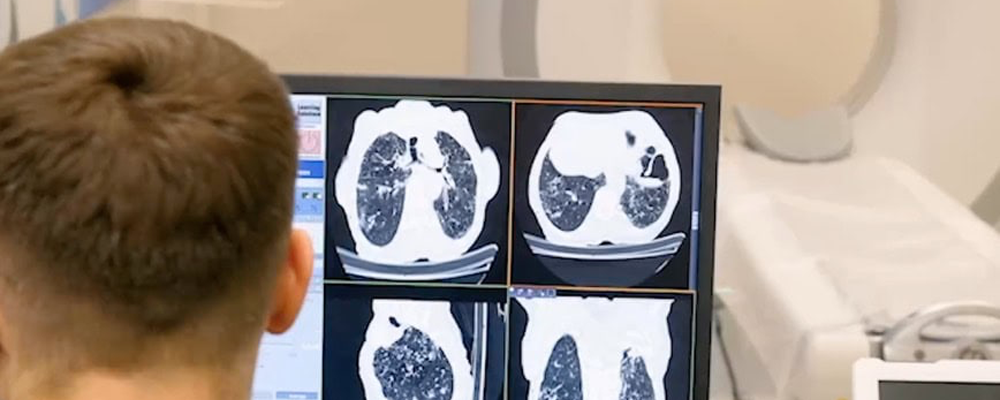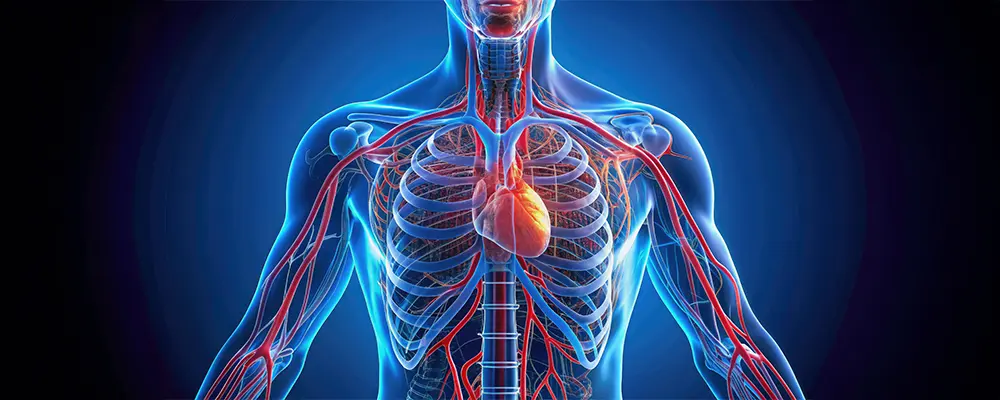4DMedical Unveils CT:VQ™ at RSNA 2024

4DMedical Limited unveiled its innovative CT:VQ technology at RSNA 2024, offering a revolutionary alternative to traditional Nuclear VQ scans, aiming to enhance diagnostic capabilities in lung health. The new imaging solution eliminates the use of radioactive isotopes, streamlining procedures while improving patient access…
The Imaging Wire Show — Getting Virtual with 4DMedical

4DMedical highlighted its unique technology for imaging respiratory function at the RSNA 2024 meeting. And the company is using a novel virtual reality environment to demonstrate its XV Scanner, as we learn in this Imaging Wire Show interview by Brian Casey with Greg Mogel, MD, and Tom Harris.
4DMedical Wins Three-Year Commercial Contract with UCSD Health

4DMedical has been awarded a contract with US-based Imaging Partners of Orange County (IPOC) to provide computed tomography (CT) scans for lung ventilation (LVAS) and lung density (LDAf) analysis.
The contract – the term of which extends through March, 2026 – reflects accelerated progress in the commercialisation of 4DMedical’s lung imaging technology and provides IPOC with scan analysis services on a subscription basis per patient, billed quarterly.
What to Expect at RSNA 2024

Are you ready for non-stop walking, Chicago pizza, and the largest Radiology conference in the world? The RSNA Annual Meeting is the most anticipated event in radiology, and RSNA 2024 promises to be no exception. This year’s conference will feature cutting-edge advancements shaping the future of medical imaging, patient care, and diagnostics.
4DMedical Wins Three-Year Commercial Contract with UCSD Health

In a groundbreaking move that marks a significant milestone for both medical imaging and respiratory care, Australian health-tech company 4DMedical has inked a strategic deal with UC San Diego Health (UCSD Health) to advance lung imaging technology. The partnership, aimed at enhancing patient care and improving diagnostic accuracy, promises to revolutionize the way lung conditions are diagnosed, monitored, and treated.
On this Veterans Day…

Imagine breathing in burning plastic for days and days on end. Unfortunately, that is the experience that many of our veterans have endured. The PACT Act is the Sergeant First Class Heath Robinson Honoring Our Promise to Address Comprehensive Toxics (PACT) Act. The Act was signed into effect by President Biden on August 8, 2022, and aims to significantly extend healthcare benefits (VA benefits) to members of the military who were exposed to toxins during their time of service by adding over 20+ more presumptive conditions for burn pits and other toxic exposures, like Agent Orange during the Vietnam War. It also offers monetary benefits to spouses and children of exposed veterans.
Understanding RSV: What You Need to Know This Fall and Winter

The cardiothoracic system includes two of our most important organs, the heart and lungs. Heart health and lung health are strongly intertwined and play an enormous role in our daily health, overall body function, and ultimately, our quality of life. Preventive cardiothoracic screenings can identify issues before they become serious problems, leading to better patient outcomes. For example, patients who undergo low-dose lung CT screenings have a 63% greater likelihood of surviving five years or more. Lung cancer often has few or subtle symptoms until the disease has become advanced; lung screenings in at-risk individuals can catch cancer before symptoms even begin.
4DMedical Secures $1.9M Grant to Ramp-up Trials for ‘Safer, Cheaper’ Lung Imaging

Military.com recently highlighted the ongoing challenges faced by veterans suffering from rare lung diseases due to burn pit exposure. Despite their service, many struggle to secure necessary care and benefits from the VA. This story underscores the urgent need for improved healthcare systems and support for these brave individuals who continue to fight invisible battles long after their service ends.
PM2.5 vs. PM10: How Different Airborne Particulates Affect Our Lungs

Wildfires are increasing in frequency, and wildfire season now spans over seven months in the Western U.S. The USDA Department of Agriculture has noticed a significant increase since the 1980s in both the frequency and duration of wildfires. The scale of the wildfire crisis in the US is staggering. In recent years, wildfires have ravaged vast areas of land, destroying homes, displacing wildlife, and endangering lives. The increase in frequency and intensity of wildfires globally has also raised concerns about the long-term effects of exposure to wildfire smoke on respiratory well-being. In this blog post, we’ll delve into the dangers wildfires pose to lung health and explore ways to mitigate these risks.
The Power of Media: Shaping Our Perceptions

Media can act as a powerful tool to encourage health behaviors. Commercials in the early 2010s highlighting the dangers of smoking successfully reduced the rate of teen smokers in the United States. However, media has expanded far past TV commercials, and social media, blogs, and online forums can be breeding grounds for myths, pseudoscience, and conspiracy theories. The digital age has democratized access to health information but has also amplified the spread of misinformation. With over 72% of US adults on some social media platform, organizations must be well-versed in best practices, proper usage, and the handling of healthcare misinformation.
